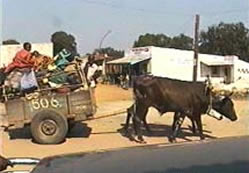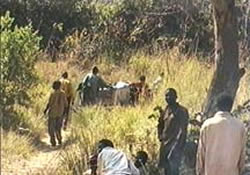 President Rupiah Banda has said that Radio Icengelo Manager, Father Frank Bwalya, was a free man to hold a public rally.
President Rupiah Banda has said that Radio Icengelo Manager, Father Frank Bwalya, was a free man to hold a public rally.
Mr Banda, who was responding to a question from a Radio Phoenix Journalist on arrival from Mongu, said government will not interfere with the holding of a public rally by Radio Icengelo Manager, Father Bwalya as he was a Zambian and a free man to a hold public rally.
The President was speaking today at the City Airport shortly after arrival from Mongu, Western Province, where he went to grace this year’s Kuomboka Ceremony.
On Friday, the MMD Ndola district executive warned of bloodshed should Radio Icengelo station manager Fr Frank Bwalya go ahead with his press conference and public meeting in Kitwe.
Meanwhile, President Rupiah Banda has described flooding in Western Province as terrible.
Mr Banda says government has since started devising mechanisms aimed at mitigating the negative impact brought about by flooding in the Western Province of the country.
Mr Banda said government was concerned with the suffering of the people in Western Province and that it was making serious plans to mitigate the impact of floods in the province.
Mr Banda assured his Royal Highness the Litunga of the Lozi people that government is assessing the damage and effects of the floods that have affected over 483,000 people in many parts in Western Province.
President Banda said government will soon start sending supplies to the affected people, 9000 of whom have already benefited.
The President named the most affected districts as Kalabo, Shangombo, Lukulu and some parts of Mongu and Kaoma, where roads, homes, crops and animals have been damaged or destroyed.
And President Banda has described the Kuomboka ceremony as a master piece of oral and intangible cultural heritage for Zambians and the world at large.
The President further thanked the people of Western province for giving him and the MMD the winning votes during the 2008 by-election.
Speaking earlier the Ngambela expressed happiness that the Government and the Barotse Royal Establishment were working well together.
The Ngambela thanked the government for responding to the effects caused by the floods and for the developmental projects being implemented in Western Province, such as the construction of the Mongu-Kalabo road.
ZANIS/ENDS/TK/EB




